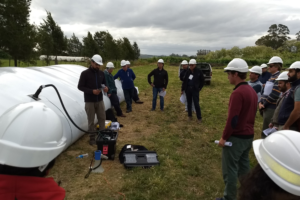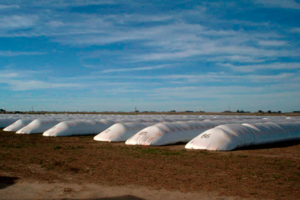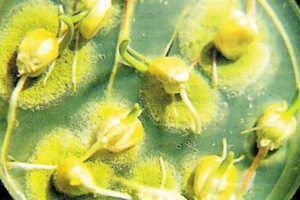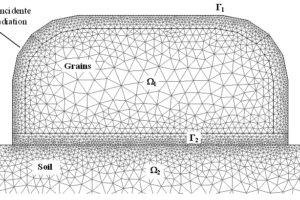Authors:
Castellari, C.1, Marcos Valle, F.1, Mutti, J.1, Cardoso, L.2, Bartosik, R.2
1 Facultad de Ciencias Agrarias, UNMdP;
2 EEA INTA Balcarce, Ruta 226 km 73,5, Balcarce (7620), Provincia de Buenos Aires, Argentina.
Abstract: In Argentina, 35 million tonnes are stored in hermetic plastic bags. Inside the bags, the modified atmosphere has an effect on stored grains, insects and fungi. Fungi taxa and species typically isolated from stored grains consist of species of the genera Aspergillus, Penicillium, Fusarium and xerophilic fungi, some of which are potential producers of mycotoxins. The province of Entre Rios, Argentina, is an important area of study because much of the production of maize stored in bags is supplying the poultry industry demand. The objective of this study was to identify mycotoxigenic fungi species in maize stored in hermetic plastic bags, located in three Departments of Entre Rios province. A total of 176 samples of maize were analyzed, stored in 23 bags located in the Departments of Paraná (west region), La Paz (northern region) and Tala (central region). Two potential producers of aflatoxins (A. flavus and A.parasiticus) and a potential producer of fumonisins (F. verticillioides) were identified in all the plastics bags evaluated. In La Paz Department, Aspergillus spp. and F. verticillioides were detected in 66.7% and 54% of samples, respectively. In Tala Department, Aspergillus spp. were detected in 63.3% and F. verticillioides in 43.6%, while in Parana, Aspergillus spp. was detected in 88.2% of the evaluated samples and F. verticillioides in 41.4% of the samples. The results revealed that mycotoxigenic fungi can develop in maize stored in hermetic plastic bags. This implies a potential risk of contamination with aflatoxins and /or fumonisins in the grain lots stored inside these bags.




